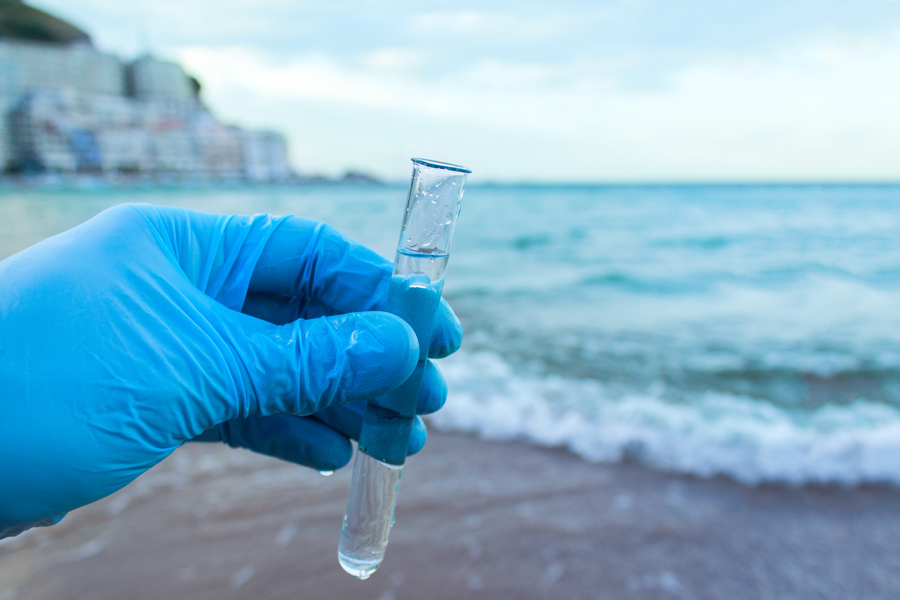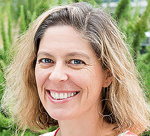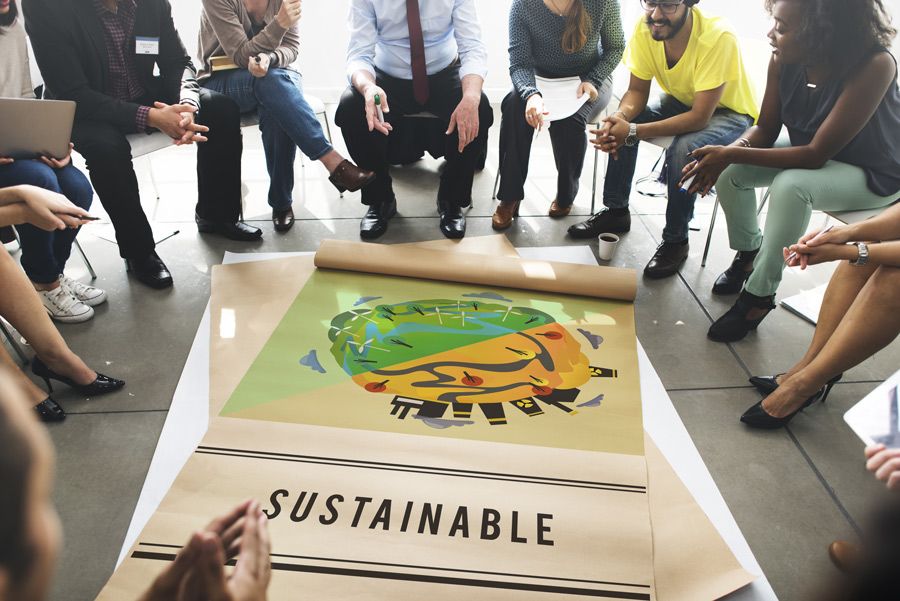How to change the world: COMPASS on science and effective communication
Why this? Why now? Why you? Saving the world is a team effort, and researchers looking to solve real-life problems need to communicate, not just across scientific disciplines, but also with policy-makers and communities, or their solutions are unlikely to make real or long-lasting change.
COMPASS is an organisation that invests in science leaders, providing them with the skills, connections, support and strategies they need to develop equitable solutions to worldwide issues such as climate change and biodiversity loss. In this interview, Research Outreach found out from COMPASS Executive Director Amanda Stanley more about their mission.
Can you tell me a little bit about the core values and the mission of COMPASS?
COMPASS champions, connects and supports diverse science leaders for the well-being of people and nature. For over 20 years, we’ve helped scientists bring their work to public conversations and become agents of change. We do that by training and coaching them in strategic communication, engagement and leadership skills and then connecting them to policy leaders, journalists, and community leaders. We’re helping scientists find and use their voices to solve some of these complex problems at the intersection of the environment and society. Ultimately, we’re working toward a future where people and nature are both thriving – it’s not an either/or.

COMPASS started out with a very clear focus on ocean science. What is your focus now?
When Dr Jane Lubchenco, Vikki Spruill and others founded COMPASS, we did have an explicit focus on elevating ocean science, because that was a gap they saw at the time. Since then, we’ve expanded our focus to the intersections of environmental science and society, under the broad umbrella of “how do we find equitable solutions to climate change and biodiversity loss?” This runs across a broad spectrum, from ocean acidification to the interplay between wildfire and climate change in the USA, sustainable food systems to environmental health and environmental justice.

COMPASS.
I was trained as an ecologist. From very early on, I wanted to do something relevant to the environment and have an impact. But I was such an introvert. I thought I could just do science and that would be enough. I got my PhD and I started out but then, as I got into ‘doing science’, I realised it wasn’t enough. After working as a researcher at a non-profit organisation for several years, I decided I wanted to have more impact in the world. So I went into philanthropy and became a programme officer at a charitable foundation. I switched gears from doing science to supporting science. I was funding research and thinking about how to ensure that research gets to where it needs to go, and how to hold decision-makers accountable. COMPASS was one of my grantee organisations, and I was really inspired by their approach and the possibilities for impact. When COMPASS started the search for a new executive director in 2016, I was eager to join and support science in a different way, and here I am.
How do we create a future where both people and nature thrive?
Who do you support?
We work with scientists at all career stages and at all sort of institutions across North America. That includes not just academics but also government scientists at state, federal and tribal agencies, scientists at non-profits and non-governmental organisations, and some industry scientists. We also take a very broad view of what a scientist is, and strategically connect people across traditional boundaries. To address complex challenges you need many kinds of expertise from many different perspectives. We bring lots of different types of researchers together in order to get a really good systems-wide view of a problem, and a systems-wide perspective on the range of solutions to address that problem.
We’re always eager to work with researchers who are building our understanding of how the environment and society intersect, and are passionate about making a difference in the world.
So COMPASS training is about more than a person’s individual research?
Absolutely. We’re working with scientists who want to make a difference, and in order to make a difference, you need to understand how your research is relevant more broadly, and be strategic about your efforts to share your work.
To help scientists understand that, we bring journalists, policy experts, and community leaders to our trainings, who can speak to what matters for the people these scientists are trying to communicate with. Scientists have limited time and resources, so we help them focus on strategic science communication, rather than just communicating for communication’s sake. Successful communication can also support career advancement, which is great, but that in itself isn’t the primary goal of our trainings. The researchers we work with are trying to build a better future.

Can you give us a few pointers on effective science communication?
It all starts out with setting your goal and answering the questions “why this, why now, why you?”
What is the problem you are trying to solve? Why is this of interest now? And why are you the right person to play a role in this? Scientists should identify what it is that they can uniquely bring to a problem.
Next, we look at understanding the audience. Who specifically are they, and what role do they play in meeting your communication goal? What do they value and care about? How is your work relevant to what they care about? How can you go about establishing trust with them?
All of our courses use our Message Box Workbook as a key part of training; it’s a tool that helps scientists distill their message and make it ‘stick’ with their audience. If you can’t take one of our training courses, we encourage you to check it out – it’s free for everyone, and also available in Spanish. The book ‘Escape from the Ivory Tower’ by Nancy Baron, our Director of Science Outreach, is also a great resource.

What, in your experience, are the main challenges when communicating with journalists and policy-makers?
Whether it’s journalists sharing information with the public or decision-makers trying to craft policy, we want good science to be part of the conversation. The key thing is helping scientists understand what information people need and how to share it with them in ways that are useful. Over time, when you do that consistently, you can become a trusted resource for a decision-maker or journalist, and that’s really important. But you can’t just show up and drop your peer-reviewed paper on the table, then leave and never come back. It’s about making a lasting connection, so when that person is working on something in your field of expertise, they know who to call for reliable info. Relationship-building is hard, though, and not all scientists have the time to do that. This is where an organisation like ours can sit at the intersection between the scientists and the people looking for science, and ultimately help scientists show up at the right time in the right place with relevant information. Fundamentally we are helping scientists to build relationships that can lead to change.
To make a difference in the world, you need to understand how your research is relevant more broadly, and be strategic about your efforts to share your work.
We see a lot of news headlines concerned about rising distrust in science. How can scientists build trust?
This issue of trust and expertise is relevant across all sectors of society. Active disinformation campaigns can make it hard to know who to trust, or bury credible information in a sea of misinformation. The good news for scientists is that, in general, they are still highly trusted. However, we do need to work harder when trust has broken down. In the United States, for example, we see trust in science is not universal around polarising issues like vaccines, climate change, or, recently, COVID. Additionally, we have to recognise where science has played a role in perpetuating harm or injustice, particularly against communities of colour – for example the water quality crisis in Flint, Michigan, or the shameful legacy of the Tuskegee experiments. Scientists have to be honest, we have to admit when things go wrong, we have to make amends, and we have to keep showing up. We have to listen, and begin any conversation by asking: what can I do for you? Building trust takes time; we cannot ‘make’ people listen. I often tell scientists: don’t just talk about your science, you also have to listen to what people are trying to tell you.

Are there any specific projects or learning experiences COMPASS is supporting that you would like to highlight?
This year we are starting a new leadership programme called ‘Leaders for Sea Change’ and it’s for scientists working along the Pacific coast (Canada, the USA and Mexico). The programme seeks to examine how the ocean is changing and how that is affecting coastal communities. We recently announced our first cohort of 20 Leaders, who are all doing incredible work, have experience working across cultures and are generous spirits. We are bringing these scientists together from all three countries to diversify the voices that represent the ocean and build a new community of scientists who are not just good researchers, but great communicators for the ocean.